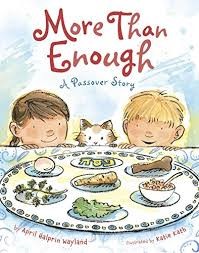Sister Doreen’s Reflections
Dayenu – it would have been enough

Dayenu is a song that is part of the Jewish holiday of Passover. The word Dayenu means approximately ‘it is sufficient’ or ‘it would have sufficed’.
Dayenu provides a powerful contemporary outlook on life, a call to mindfulness about the way we currently lead our lives. This song is a remarkable and deceptively simple teaching about embracing the present, while having a keen interest in the past and a yearning for the future. It’s about feeling longing, ingratitude; triumph and tragedy. It’s about celebrating every single step along the way and yet fiercely longing for the fulfillment of one’s dream.
One of the great gift-treasures held out to us in this song Dayenu, it would have been enough, is that it asks us a question and provides us an answer. Who is rich? The one who is content with what one has.
We are encouraged to carve out occasions for excess, for enjoying the finer parts of living, on holidays, celebrations and other joyous occasions. But if we want to experience delight on these occasions, we also need moments of restraint. It is the juxtaposition of restraint and largess that creates a life of meaning. It is a song of thanksgiving and gratefulness for all that God has done for us. Gratefulness for what is.
Dayenu – the song, acknowledges 15 major biblical events asking us to sing Dayenu after each one, for example:
If God had brought us out of Egypt but not divided the Red Sea for us, Dayenu; it would have been enough.
If God had led us to Mount Sinai but there had been no encounter, Dayenu; it would have been enough.
If we had had the encounter with God at Sinai but not made it through the desert, Dayenu; it would have been enough.
What would be my own Dayenu song?
Beyond the individual experience, we also are becoming increasing aware of the global consequences of unbridled materialism over a sense of sufficiency. From income inequality to climate change / crisis, our refusal to entertain limits on what we do and how much we consume are wreaking destructive consequences. By returning to a sense of Dayenu, of thinking deeply about what it enough, we have the potential to change ourselves and the world.
When we become proficient at gratitude, when we can experience the fullness of Dayenu, as affirmation, lament, protest, and question, our happiness will be so much richer and more real. After all, if we are only happy when everything works out, happiness will always elude us and our experience of reality will be so much narrower.
If we were to practice Dayenu every morning and every night before we went to sleep, imagine how we would reframe our goals and anxieties; how differently we’d parse our day!
The question of scarcity is “how do I get what I need to feel happy and secure?”
The question of abundance is “how do I really know what I really need?”
Psalm 119: 105 – 112 (Ancient Songs Sung Anew – L. Bauman)

No step I take without the lamp-light of your word
upon a darkened path to guide my way.
I’ll follow faithfully your light as right and good.
This is the promise of my heart and mind to you.
Even in the midst of deepening pain, it gives me life.
Revive me Lord, according to your word.
Accept from me the veneration of your name,
and in it teach me all I need to know.
I’ve often felt I must own everything,
and take from you the whole control.
But so I don’t forget the greater law, and go astray
and lose my central heritage and joy,
Evil sets another trap
and awakens me again.
You see, you are the centre of my heart
and all you speak to human kind, I
follow to the letter.


